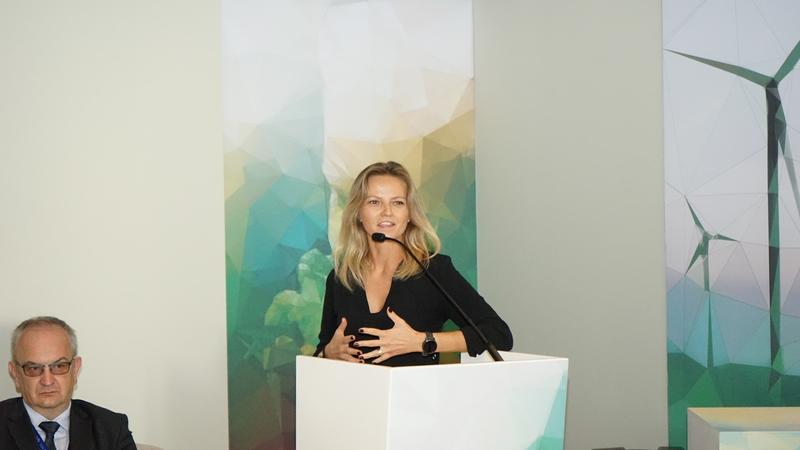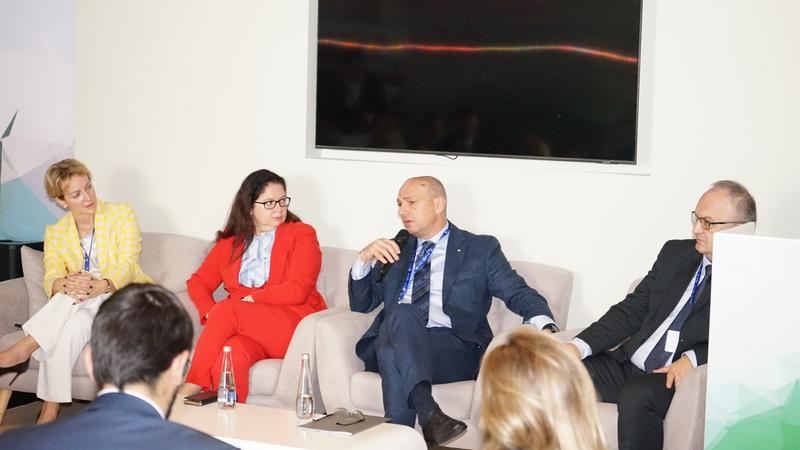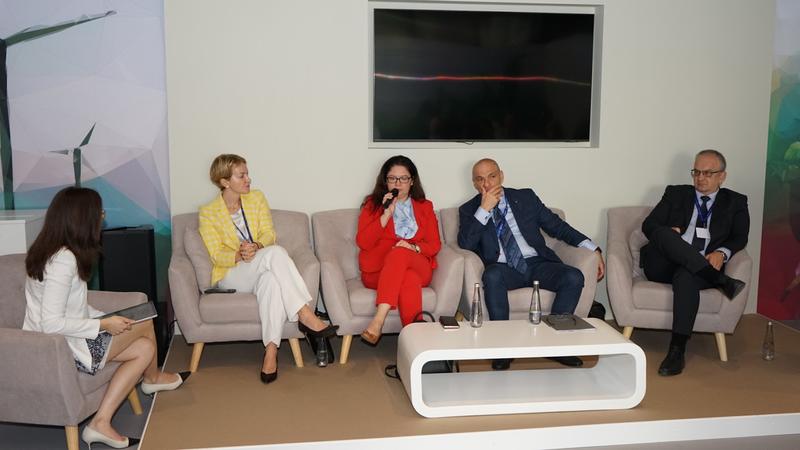Representatives of Bulgaria, Romania and Greece exchanged ideas on offshore wind energy at COP28
The Ministry of Environment and Water hosted a discussion on the potential of offshore wind energy in Bulgaria, Greece, and Romania at the Bulgarian pavilion at COP28 in Dubai.
"The wind sector is different, the projects are expensive, some are very offshore, these are complex projects. The first challenge was to create a legislative framework, we had to start with regulation from the beginning" - this is how the Greek Deputy Minister of Environment and Energy Alexandra Sdoukou started the discussion. She shared that Greece had already made progress in preparing legislation to boost offshore wind energy in line with European plans to diversify energy sources and as part of solutions against climate change. "We in Greece and Bulgaria do not have the experience of the countries in the North Sea region, but there are already good practices to follow," highlighted Sdoukou. She explained that a few years ago, Athens had started preparing for successful wind projects. "Back then we were at ground zero, we only knew that we had great wind potential. In one year we prepared a regulatory framework for Greece. Regulation should always provide for the facilitation of investment," Sdoukou said. She pointed out that Athens had chosen to set a target of 1.9 gigawatts of offshore wind power so as not to set overly ambitious targets that would scare off investors.
"Bulgaria has a draft strategy, we are following a similar path with Greece," said Bulgarian Deputy Energy Minister Nikolay Nikolov. He added that the draft legislation is ready and challenges are still to be overcome related to various offshore sites and areas that should remain outside the plans for offshore wind installations. "Bulgaria is talking with neighbouring Romania about a possible joint offshore project in the Black Sea. We believe there is a future for offshore wind in the region," Nikolov added.
Readiness to work with electricity from offshore wind installations was expressed by Dimitar Zarchev - director of the central dispatching management at the Electricity System Operator (ESO). He pointed out several challenges for system operators, but according to him all of them can be easily overcome. One of the issues is how and where to connect distant installations inland - to Bulgaria or to Romania, for which interconnectors are needed. The energy will enter the power grids of both Bulgaria and Romania and will be used by whoever needs it, and this requires excellent coordination between the two countries. He urged the countries in the region not to act bilaterally but to work regionally.
Romania is using consultants to prepare the legislative framework, said Alexandra Bocse, state advisor on climate and sustainable development in Romania's presidential administration. She said the country has the potential for six gigawatts of offshore wind power by 2030. The draft legislation that would allow the deployment of wind energy is still under discussion and is expected to be approved by the parliament in Bucharest early next year. "There is a potential for cooperation, it is very important to look wider and to look for opportunities to integrate projects from countries like Azerbaijan and others into the European energy market," she added.


